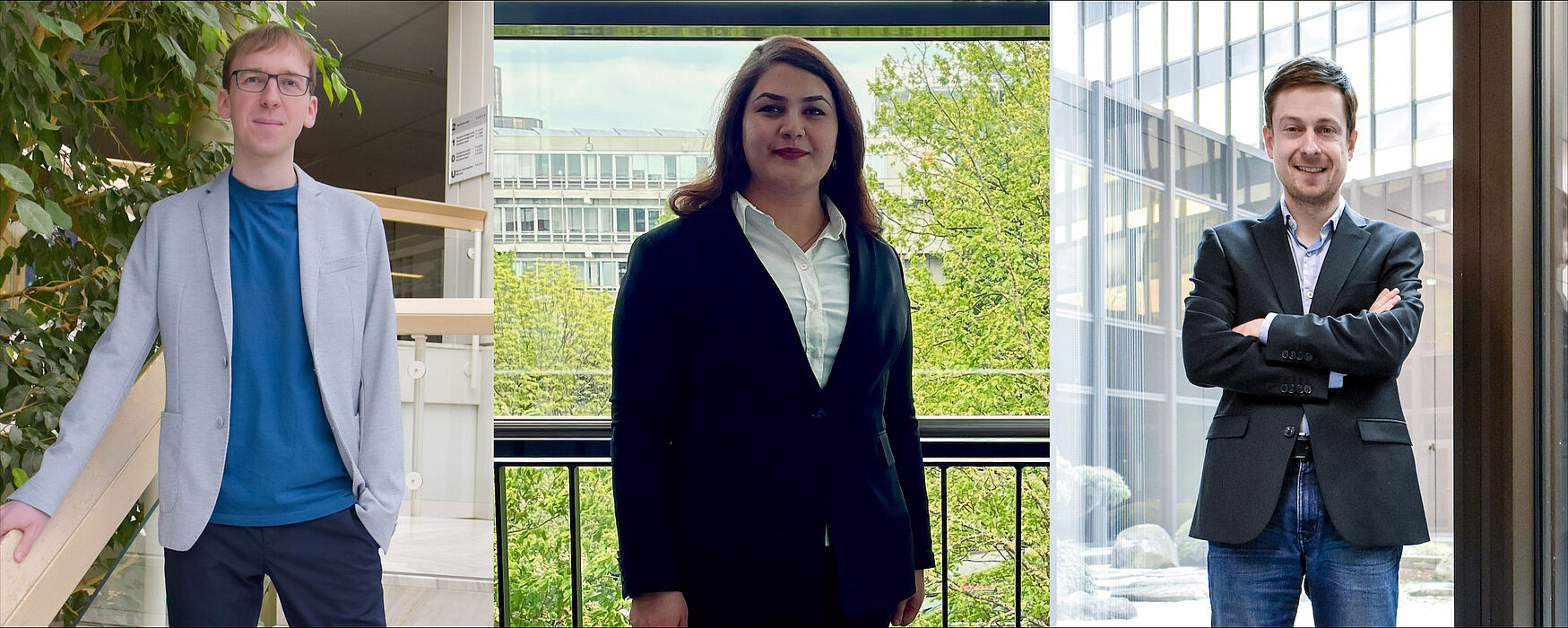Am 22.05.2023 werden sich ab 16 Uhr im Hörsaal O1 der Universität Paderborn die neu gewonnenen Nachwuchsgruppenleiter*innen vorstellen. Mit Frau Dr. Zahra Raissi die im Bereich „Quantum Information“ forscht, stellen sich Herr Dr. Philipp Terhörst mit seinem Bereich „Responsible Artificial Intelligence for Biometrics“ und Herr Dr. Stefan Heindorf mit seinem Bereich „Data Science“ vor.
„Durch die neu geschaffenen Nachwuchsgruppenleitungen entsteht die Möglichkeit, die vorhandenen Forschungsschwerpunkte zu verstärken und auszuweiten, und neue Forschungsfelder zu erproben. Das führt auch zu einer Bereicherung unserer Lehre, was das Informatikstudium bei uns attraktiver macht.“, so Institutsleiter Prof. Dr. Christian Scheideler.
Alle drei Nachwuchswissenschaftler*innen wurden auf der Webseite des Instituts bereits durch kleine Portraits vorgestellt, in denen Sie ihre Ambitionen für Forschung und Lehre erläutern. Mit den Antrittsvorlesungen stellen Sie sich nun offiziell noch einmal im Institut und der Hochschulöffentlichkeit vor.
Hier können Sie die Themen der Vorträge im Detail nachlesen:
Zahra Raissi
Title:
Many-body entanglement and quantum error correction
Abstract:
One of the overarching goals of quantum information science is to understand how quantum physics can be exploited to develop new technologies that are otherwise impossible. Over the past few decades, it was discovered that quantum physics has the potential to revolutionize information security and sensor technology, in addition to enabling quantum computers, devices capable of solving a number of outstanding problems in computer science, physics, chemistry, and biomedicine that are intractable with even the most powerful supercomputers. These findings have spurred enormous efforts around the world to bring these quantum information technologies to fruition.
In this talk, I will mainly focus on entanglement and especially many-body entanglement (the basic principles underlying quantum mechanics and, therefore, quantum information technologies) and quantum error correcting codes (essential to achieving fault-tolerant quantum computing). These topics are the basic principles underlying quantum information technologies that, at this point, are the central challenge to determine how quantum states can be used for quantum communication and computing and develop quantum technologies in our daily life despite their imperfections.
Phillip Terhörst
Title:
Towards Responsible Biometric Systems
Abstract:
Biometric verification refers to the automatic verification of a person’s identity based on their behavioral or biological characteristics. Due to their high performance, biometric systems are widely deployed and have a growing effect on our daily life. This includes convenience-based applications like smartphone-unlocking and critical decision-making processes such as financial transactions or forensics. However, the success of biometric recognition systems is based on adapting deep-learning techniques which comes at the cost of major discriminatory concerns regarding fairness, privacy, reliability, and interpretability. This talk will present and analyze these issues to make future biometric systems more secure, and responsible and thus, address societal needs.
Stefan Heindorf
Title:
Neurosymbolic Explainable AI for Knowledge Graphs
Abstract:
The importance of explainable AI has increased significantly over the past years: regulators would like to ensure the model’s compliance with laws and ethics guidelines, data scientists would like to improve the model’s predictions, and clients affected by the model’s decisions would like to verify fairness. At the same time, knowledge graphs (KGs) are used by over 4B people in an increasing number of applications including web search and question answering. They represent large amounts of interpretable training data which is comprehensible both by humans and machines and can serve to learn interpretable models, e.g., concepts in description logics. In this talk, I will present some of our recent research on learning concepts in description logics on knowledge graphs and I will outline directions of future research including neuro-symbolic approaches combining the strengths of symbolic reasoning with the power of neural networks, enabling models that are both interpretable and effective.

